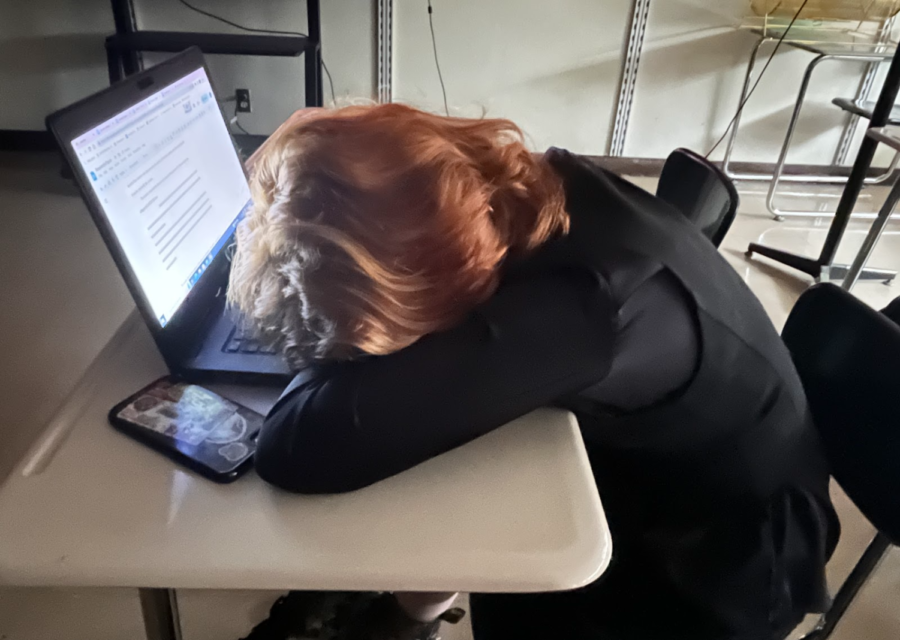Students adjust to daylight savings
Junior Harper Flynn falls asleep during class. “It’s been really hard for me to focus in class and get work done,” Flynn said.
March 28, 2023
On Sunday, March 12, the clocks jumped forward an hour, causing everyone to lose an hour of sleep. This time change impacted students in their energy and productivity.
Junior Harper Flynn, for example, normally isn’t as relatively tired as other students, but the jump forward changed that.
“I’m usually the person who’s full of energy, even in the mornings,” Flynn said. “But these past couple of mornings, I haven’t been full of energy.”
The lack of energy has affected students’ schoolwork.
“Honestly, ever since daylight savings, I’ve been struggling more to get stuff done because I’m so tired, and I fall asleep when I’m doing my assignments,” junior Nina Sidhu said. “Before daylight savings, I was just way more on top of things.”
The change in productivity doesn’t stop at just the workload. Many students are struggling more to even just get through the school day than they had before the time change.
“The daylight savings jump forward has drained my energy the past few days, and I feel more tired throughout the day than I usually do,” junior Amir Mehrtash said.
However, students are progressing again as time passes.
“The first few days were the hardest, but over time my body adjusted,” sophomore Nicole Scott said.





























